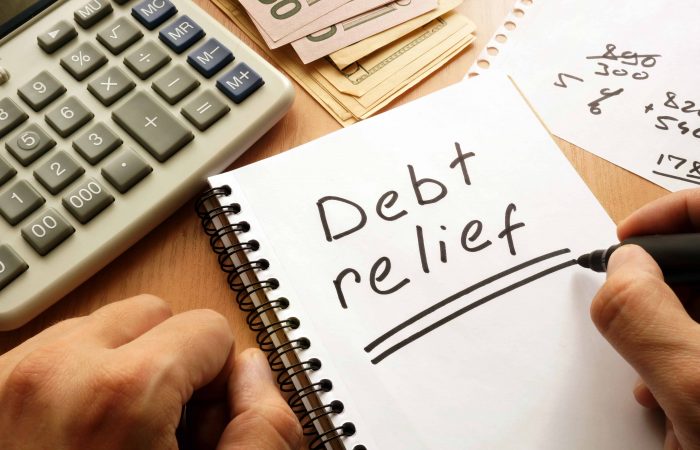It seems like affordable housing is somewhat of a unicorn these days. Many families may easily find themselves in a situation where they’re spending too much on housing costs. The cost of housing includes both monthly rent and utility bills. Unfortunately there aren’t enough affordable rental units for everyone that needs one. If you’re trying to get your housing costs down, you can consider a few different options. There are different government programs that can provide rental assistance or more immediate housing solutions.
How to Figure Out Your Budget for Housing Costs
If you’re working on getting your housing costs down, the first step you can take is to gain an understanding of your budget. How much housing costs you can afford each month is dependent on your household gross income. This is what you make before taxes and other deductions are taken out of your paycheck. You want to be sure that you’re not spending too much of your total income on rent and utilities. Unfortunately, the current housing market doesn’t make that easy. Especially if you don’t make a lot of income. If you’re spending too much these costs, you can find yourself in a difficult financial position. When cost-burdened, other basic expenses become too much to handle.
To prevent this type of situation, you can follow a general rule of thumb when determining your monthly budget. The United States Department of Housing and Urban Development (HUD) asserts that housing expenses should not cost more than 30% of your gross income. For example, if you make $2080 per month, you can roughly handle up to $624 in housing.
Housing Support Options to Consider
Spending within your budget can be difficult when it comes to housing expenses. Unfortunately affordable rental units seem few and far between. This is one reason many individuals and families find themselves without stable housing. People that struggle to find housing may need to turn to poor living conditions or even homelessness. This is why it’s important to understand your options when it comes to housing support. Depending on your situation, one of the following options may be able to provide some relief:
- Supportive Housing
- Housing Choice Voucher Program
- Public Housing
Supportive Housing
Supportive housing programs offer many other benefits beyond just providing shelter. Often these programs can effectively reduce homelessness rates by addressing some root causes behind it. Supportive housing programs can give people a place to stay while helping them rebuild their life. People experiencing homelessness can turn to one of these housing options for help:
- Permanent Supportive Housing (PSH)
- Emergency Shelters
- Rapid Re-Housing (RRH)
- Transitional Shelters
Permanent Supportive Housing (PSH)
In order to understand who can seek help from Permanent Supportive Housing (PSH), it’s important to know what it means to be chronically homeless. The United States Department of Housing and Urban Development (HUD) defines this term. In short, chronically homeless can be defined as someone who hasn’t had a stable housing situation for a total of over one year. More specifically, a person meets this definition if they relate to at least one of the following:
- Lives in a place that isn’t intended for human occupation for at least one year. This also applies to four separate stays that total one year, spread over the course of three years.
- Lives in a Safe Haven for at least one year. This also applies to four separate stays that total one year, spread over the course of three years.
- Staying in an Emergency Shelter for at least one year. This also applies to four separate stays that total one year, spread over the course of three years.
- Checked in at an Institutional Care Facility for 90 days or less. In addition to that, was previously living in one of the above circumstances prior to being checked in for care.
If you’re experiencing chronic homelessness, PSH can offer you a safe place to stay when you need it most. In addition to that, the program also places a large focus on recovery to promote long-term stability.
Emergency Shelters
Shelters are likely the first thing that comes to mind when you think of supportive housing for people dealing with homelessness. Emergency shelters can provide a short-term solution. How long you can stay depends on the location. Some shelters may even provide additional resources that can help you get back on their feet.
Rapid Re-Housing (RRH)
Rapid Re-Housing (RRH) is a solution that can provide individuals in need a place to stay. In addition to that, recipients can benefit from temporary support services. People that are not chronically homeless can utilize RRH.
Transitional Shelters
Much like the other options on this list, transitional shelters can offer people a place to stay along with other resources of support. These shelters are intended to shelter someone long-term. The exact amount of time varies depending on the location. However, stays can be anywhere from six to 24 months long.
Housing Choice Voucher Program
The Housing Choice Voucher Program is a rental assistance program also called Section 8. This program helps qualifying households get access to safe housing. If you’re eligible for Section 8, you are responsible for finding your own rental unit on the private market. Once you find something, your local public housing agency (PHA) applies your credit directly to your rent. The subsidies come in the form of a voucher. The amount of your voucher is based on your income and other factors. Voucher holders can expect to pay roughly 30% of their gross income, while the voucher covers the rest.
If you are interested in applying to the HCV program, you should go through your local PHA. Additionally, you can also reach out to the nearest HUD office. When it comes to eligibility, income level is a major factor that is considered. This is because the program wants to help families that cannot otherwise access safe and affordable housing. For this reason, households that make over 50% of their area’s median income (AMI) do not typically qualify. Other than income, there are other aspects that are considered by the PHAs. In fact, you can expect that the following categories will come up on your application:
- Status of Citizenship or Immigration Status
- Number of Members in the Household
- Rental History
Public Housing
Public housing is a very well-known program. Despite its popularity, people who have heard of this housing assistance option may not know exactly how it works. Recipients of public housing pay a rent that they can afford based on their income, to local housing agencies (HAs). The housing agencies are essentially the landlords in charge of public housing units. Therefore, recipients enter into a lease agreement with their local housing office. It’s common to assume that public housing units are limited to apartment buildings. However, units come in a variety of home styles, even single-family homes!
Public housing is federally funded and provided by the United States Department of Housing and Urban Development (HUD). If you want more information on this assistance option, you can reach out to your local agency or even the HUD Field Office.
Resources for Finding Affordable Housing Programs
Now that you’re familiar with a few available options, it’s important to do further research before deciding on the right program for you. Finding affordable housing programs near you can be an overwhelming process. However, there are several online resources available to help. These websites and helplines provide detailed lists of federal, state, and local resources that can help people find affordable housing options. With that being said, two websites that you can visit to get started include:
- 211.org
- Benefits.gov
Get Connected Through 211.org
211.org is a national helpline that connects people with essential community services in their area. By dialing 2-1-1 or visiting the website, you can find information on various programs and organizations. Households can get assistance with housing, food, healthcare, employment support, and more. Roughly 4.8 million connections have been made thanks to this free and confidential service. In addition to giving information on affordable housing, 211.org also provides support with other methods of lowering living expenses.
Using Benefits.gov to Find Government Assistance Programs
Another valuable online resource is benefits.gov. This government website allows you to review the numerous programs that are out there. If you’re not sure what type of assistance you’re looking for, the website features a tool that can narrow it down for you. Benefit Finder uses details you give by answering a short questionnaire. Then based on that information it delivers options that fit your situation. After reviewing each option you can apply to the ones that you’re interested in. Keep in mind that using this tool doesn’t guarantee that you’ll qualify for any of the suggested programs.
In addition to that, you can also check out different programs through searching by agency or category. If you’re familiar with what kind of help you can get, this may be quicker than using Benefit Finder. However you choose to search, this website can make it easy for you to do your own research online.
Other Federal Assistance Programs that Can Help with Expenses
In addition to housing assistance, families that are struggling financially can also benefit from other forms of relief. The government offers programs that can help in many categories. This includes health coverage, nutrition, cash assistance, and more. Although eligibility for each program varies, certain people may be able to benefit from multiple programs at once. Therefore, even if you don’t qualify for rent assistance, it is still worth it to look into other options! If you’re able to receive monthly funds from a different federal program, this could help open up your budget for housing costs. Various other programs offered by the federal government include:
- Supplemental Nutrition Assistance Program (SNAP)
- Special Supplemental Nutrition Program for Women, Infants, and Children (WIC)
- Lifeline
- Medicare
- Supplemental Security Income (SSI)
- Medicaid
- Temporary Assistance for Needy Families (TANF)
- Social Security Disability Insurance (SSDI)
- Children’s Health Insurance Program (CHIP)
Final Takeaway
When it comes to dealing with housing expenses, many households can find themselves struggling. Housing expenses don’t only include rent! Rent is already a major expense. Then when you add smaller bills, like utilities, everything adds up. When it comes to determining how much housing you can afford, you want to ensure you understand your budget. Your personal budget should be based on your household’s income.
Applying to one of these programs can take time. Even approved applications often need to wait until it’s their turn to receive assistance. People who need immediate support can turn to supportive housing options. If you would like to benefit from any housing assistance, you can start by contacting your PHA. If you’re curious about any other programs or want to do your research, visit Benefits.gov or 211.org. You may be surprised at what you can find out!



